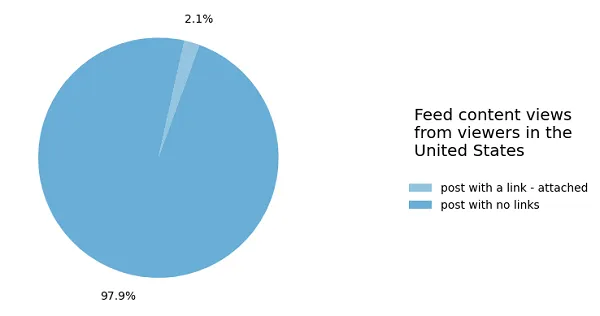Living below your means might sound like a simple concept, but in today’s fast-paced world, it can be a real challenge. In simple terms, to live below or within your means is to spend less money than you earn each month. This approach can lead to better financial management and improved well-being. Whether you’re trying to save for a big purchase, eliminate debt, or just find a more sustainable way to live, sticking to this principle is essential. Even if you have debts, including options like debt consolidation loans with bad credit, it’s possible to get back on track. Here are some effective strategies to help you live below your means and enhance your financial health.
Create a Realistic Budget
The first step to living below your means is establishing a budget that reflects your actual income and expenses.
Track Your Income and Expenses
To create an effective budget, start by tracking your income and all your expenses for at least a month. This means listing everything from rent and groceries to entertainment and occasional splurges.
- Use Apps or Spreadsheets: You can use budgeting apps or simple spreadsheets to categorize and visualize your spending. This will help you identify where your money goes and where you can cut back.
Set Clear Spending Limits
Once you have a clear picture of your financial situation, set limits on various categories.
- Prioritize Necessities: Allocate funds for essential expenses like housing, utilities, groceries, and transportation before considering discretionary spending.
- Stick to Your Limits: Try to stick to these limits as closely as possible. This discipline is key to maintaining a lifestyle that doesn’t exceed your income.
Cut Unnecessary Expenses
Now that you have a budget in place, it’s time to identify areas where you can cut back.
Identify Non-Essential Spending
Look through your spending categories and identify any non-essential items. This could include:
- Subscriptions: Do you have subscriptions to streaming services or magazines you rarely use? Consider canceling them.
- Dining Out: Eating out can be enjoyable but also adds up quickly. Try to limit dining out and instead focus on cooking at home.
Practice Mindful Spending
Before making any purchase, ask yourself if it aligns with your financial goals.
- Delay Purchases: If you’re considering an impulse buy, wait 24 hours. This can help you determine if it’s truly something you need or just a fleeting desire.
Embrace Minimalism
Minimalism isn’t just a trend; it’s a lifestyle choice that can lead to significant financial benefits.
Declutter Your Life
Go through your belongings and identify items you no longer need or use.
- Sell Unused Items: Consider selling items you don’t use anymore. This can free up space in your home and provide you with a little extra cash.
Focus on Experiences Over Things
Instead of spending money on material possessions, invest in experiences that bring joy and fulfillment.
- Create Memories: Spend time with friends and family through low-cost activities like hiking, game nights, or picnics instead of extravagant outings.
Build an Emergency Fund
Living below your means allows you to save for unexpected expenses, which is essential for financial stability.
Set Savings Goals
Aim to save at least three to six months’ worth of living expenses in an easily accessible account.
- Start Small: If this seems daunting, start with a small goal, like saving $500. Once you achieve that, gradually increase your target.
Automate Your Savings
Set up automatic transfers from your checking account to your savings account each month.
- Pay Yourself First: Treat your savings like a non-negotiable expense. By automating, you won’t even miss the money, and it will build up over time.
Explore Debt Relief Options
If you’re struggling with debt, explore options to manage it effectively without sacrificing your lifestyle.
Consider Debt Consolidation Loans
If you have multiple debts, including high-interest credit cards, you might benefit from debt consolidation.
- Understand Your Options: Look for debt consolidation loans that are available even for those with bad credit. While this may seem challenging, many lenders offer options tailored to individuals in tough financial situations.
Seek Professional Advice
If you’re unsure where to start, consider reaching out to a financial advisor or credit counseling service. They can provide guidance tailored to your specific situation.
Review Your Goals Regularly
Setting financial goals is great, but it’s equally important to review and adjust them regularly.
Set Short, Medium, and Long-Term Goals
Establish a mix of short-term and long-term financial goals.
- Short-Term Goals: This could include paying off a specific credit card or saving a certain amount in your emergency fund.
- Long-Term Goals: These might involve saving for a home or retirement.
Monitor Your Progress
Set aside time each month to review your budget and see how well you’re sticking to your goals.
- Adjust as Needed: If you find you’re falling short in certain areas, don’t be afraid to adjust your budget or goals. Flexibility is key to maintaining a healthy financial lifestyle.
Stay Educated About Personal Finance
Knowledge is power, especially when it comes to managing your finances.
Read Books and Articles
There are plenty of resources available that can help you understand personal finance better.
- Online Resources: Websites, blogs, and online courses can provide valuable insights into budgeting, saving, and investing.
Engage with Financial Communities
Join online forums or local groups focused on personal finance. Sharing experiences and tips with others can motivate you to stay on track.
Conclusion: Live Within Your Means
Living below your means is not just about cutting costs; it’s about making informed choices that lead to financial security. By setting a budget, cutting unnecessary expenses, embracing minimalism, and building an emergency fund, you can take control of your finances. Exploring debt relief options and regularly reviewing your goals can further enhance your financial well-being.
So, take a moment to reflect on your spending habits and make a plan to start living within your means. With determination and the right strategies, you can pave the way for a more secure and fulfilling financial future!


































































